Siyuan Yuan
Spatial Deep Deconvolution U-Net for Traffic Analyses with Distributed Acoustic Sensing
Dec 20, 2022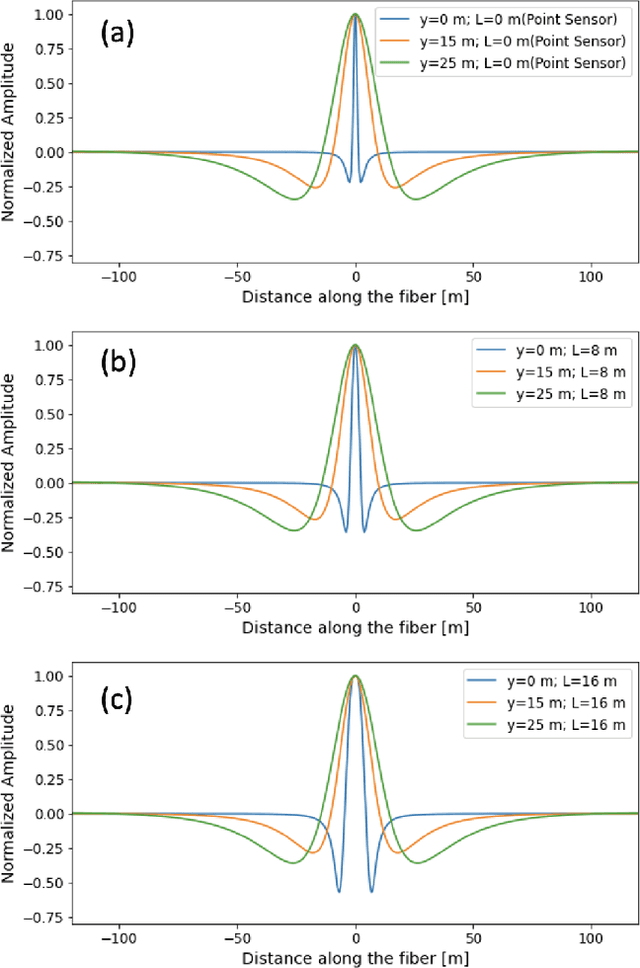
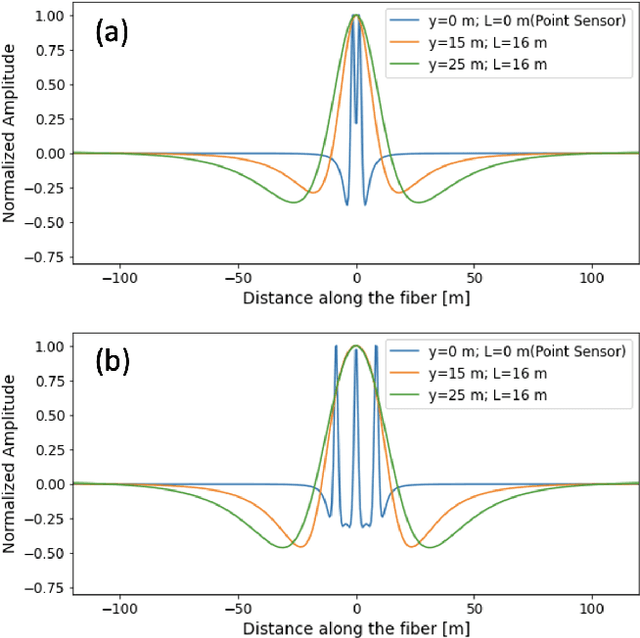
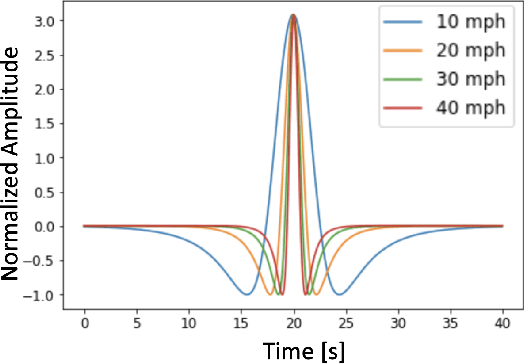
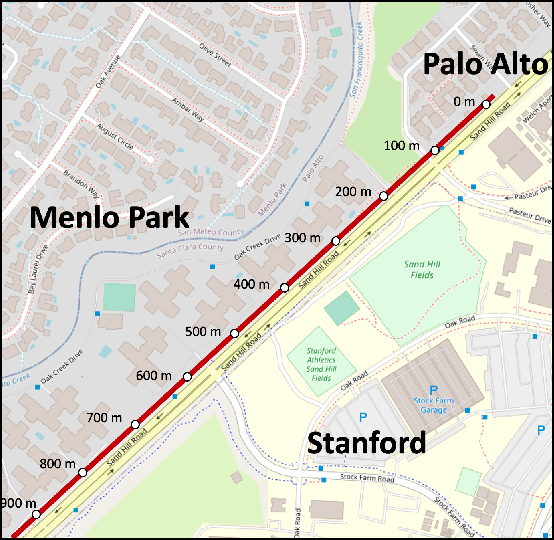
Abstract:Distributed Acoustic Sensing (DAS) that transforms city-wide fiber-optic cables into a large-scale strain sensing array has shown the potential to revolutionize urban traffic monitoring by providing a fine-grained, scalable, and low-maintenance monitoring solution. However, there are challenges that limit DAS's real-world usage: noise contamination and interference among closely traveling cars. To address the issues, we introduce a self-supervised U-Net model that can suppress background noise and compress car-induced DAS signals into high-resolution pulses through spatial deconvolution. To guide the design of the approach, we investigate the fiber response to vehicles through numerical simulation and field experiments. We show that the localized and narrow outputs from our model lead to accurate and highly resolved car position and speed tracking. We evaluate the effectiveness and robustness of our method through field recordings under different traffic conditions and various driving speeds. Our results show that our method can enhance the spatial-temporal resolution and better resolve closely traveling cars. The spatial deconvolution U-Net model also enables the characterization of large-size vehicles to identify axle numbers and estimate the vehicle length. Monitoring large-size vehicles also benefits imaging deep earth by leveraging the surface waves induced by the dynamic vehicle-road interaction.
Improved singing voice separation with chromagram-based pitch-aware remixing
Mar 28, 2022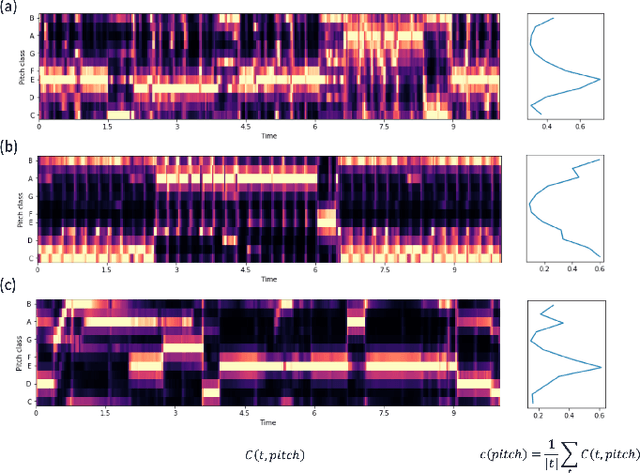
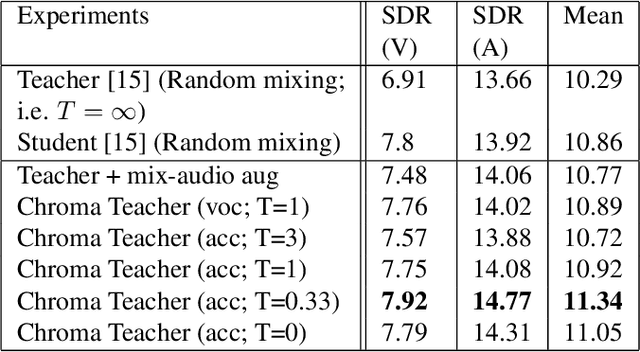

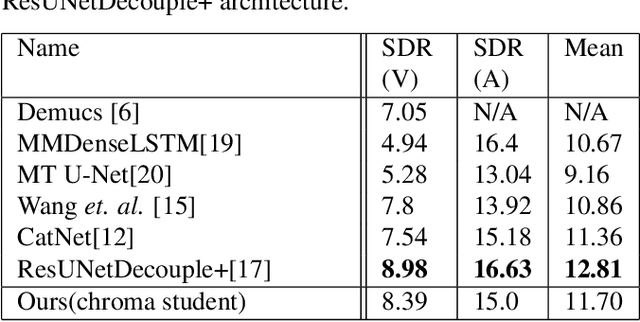
Abstract:Singing voice separation aims to separate music into vocals and accompaniment components. One of the major constraints for the task is the limited amount of training data with separated vocals. Data augmentation techniques such as random source mixing have been shown to make better use of existing data and mildly improve model performance. We propose a novel data augmentation technique, chromagram-based pitch-aware remixing, where music segments with high pitch alignment are mixed. By performing controlled experiments in both supervised and semi-supervised settings, we demonstrate that training models with pitch-aware remixing significantly improves the test signal-to-distortion ratio (SDR)
 Add to Chrome
Add to Chrome Add to Firefox
Add to Firefox Add to Edge
Add to Edge